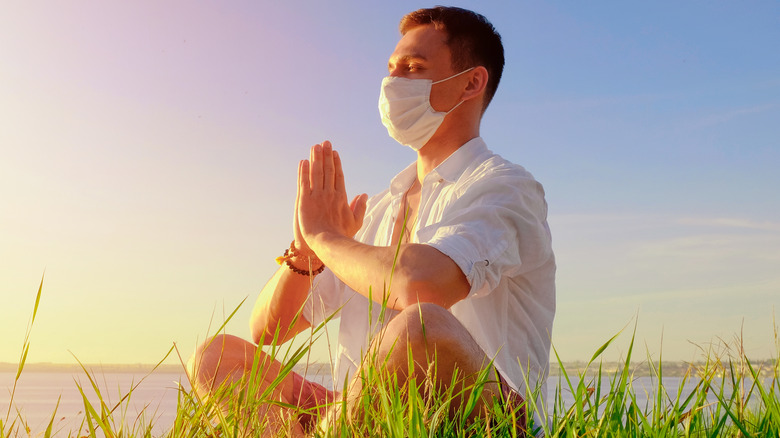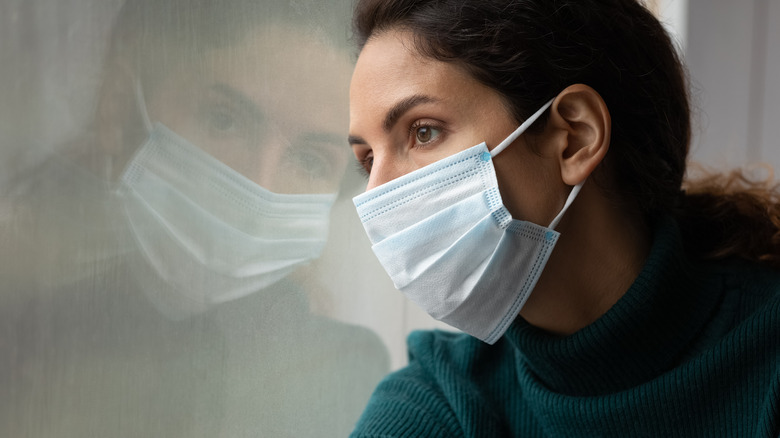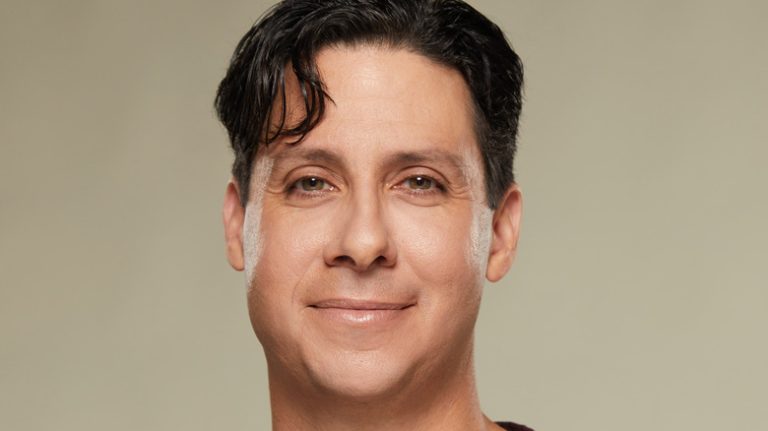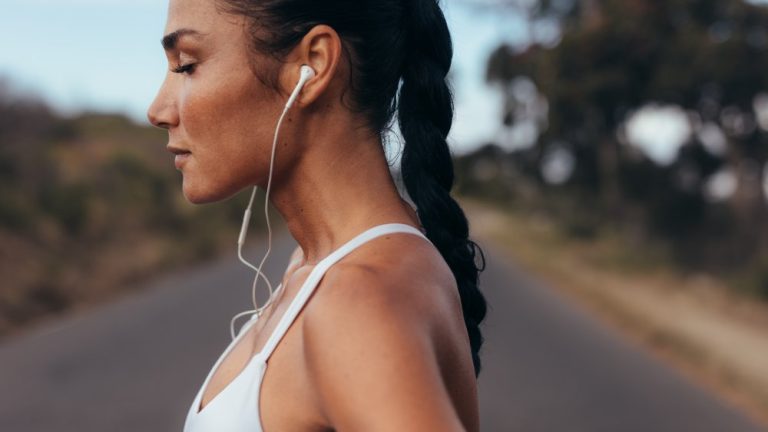Wearing a mask to help prevent the spread of COVID-19 has been a part of day-to-day life for years. As cases rise and fall, the Centers for Disease Control and Prevention (CDC) provides information to understand transmission rates where you live and what measures you should take to protect yourself and others. While wearing a mask, and sometimes wearing a mask all day, has been one of these measures for years, many still find them uncomfortable. And for some, masks increase feelings of anxiety. There are a few reasons this may be the case.
Per Cleveland Clinic, psychiatrist Brian Barnett explains that individuals with anxiety disorders or a history of claustrophobia might experience anxiety while wearing a mask. Some individuals might solely feel psychological symptoms of anxiety, while others may have physical symptoms such as an increased heart rate, sweating, dizziness, and shortness of breath. These symptoms can be alarming and may require help from a professional if wearing a mask is a requirement in your daily life.
Providence, a multi-state health care system, provides more insight into mask anxiety and methods you can use to cope if wearing a mask increases your feelings of anxiety. They explain that because of the COVID-19 pandemic, many individuals have experienced increased levels of anxiety. When this is combined with wearing a mask, it can make the anxiety worse. Providence also explains that some individuals fear they won’t be able to breathe while wearing a mask.
Tips to help reduce anxiety from wearing a face mask

If you are someone who is experiencing increased anxiety due to needing to wear a mask, both Providence and Cleveland Clinic provide actionable tips you can try to help yourself feel better while mask-wearing. Both health care systems recommend working on desensitizing yourself to mask-wearing and starting the process in your home. Providence describes a type of breathwork, called diaphragmatic circle breathing, that you can do to help keep yourself calm while you practice. Cleveland Clinic suggests challenging anxious thoughts or adding aromatherapy to your mask-wearing.
If your efforts at home aren’t successful in helping to reduce your anxiety, Cleveland Clinic suggested visiting a professional for help. They explain how specific types of therapy, such as cognitive behavioral therapy or exposure therapy, may be helpful in reducing anxiety.
Regardless of the specific reason for your increased anxiety with mask-wearing, or the method you choose to help address it, know that the COVID-19 pandemic has increased stress and anxiety for many. If you find yourself struggling, it is important to reach out to your healthcare provider, another mental health professional, or a trusted support person for help.
If you or someone you know is struggling with mental health, please contact the Crisis Text Line by texting HOME to 741741, call the National Alliance on Mental Illness helpline at 1-800-950-NAMI (6264), or visit the National Institute of Mental Health website.




